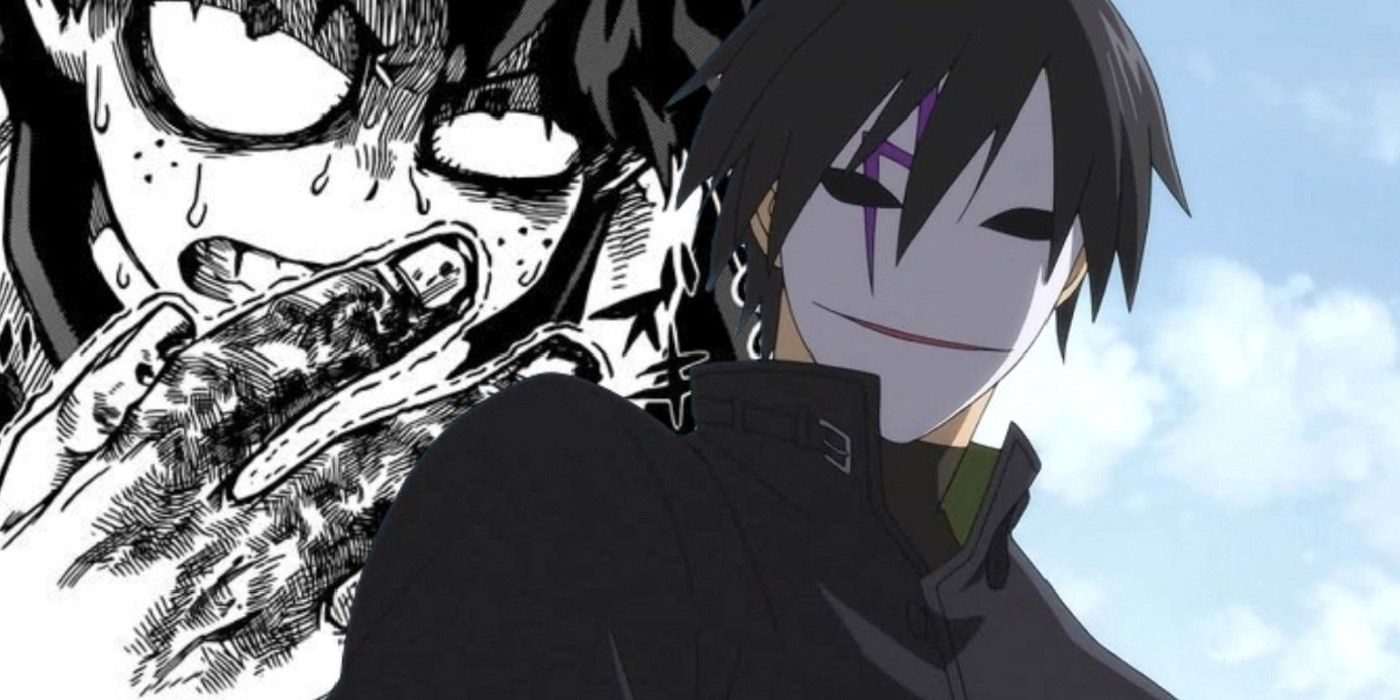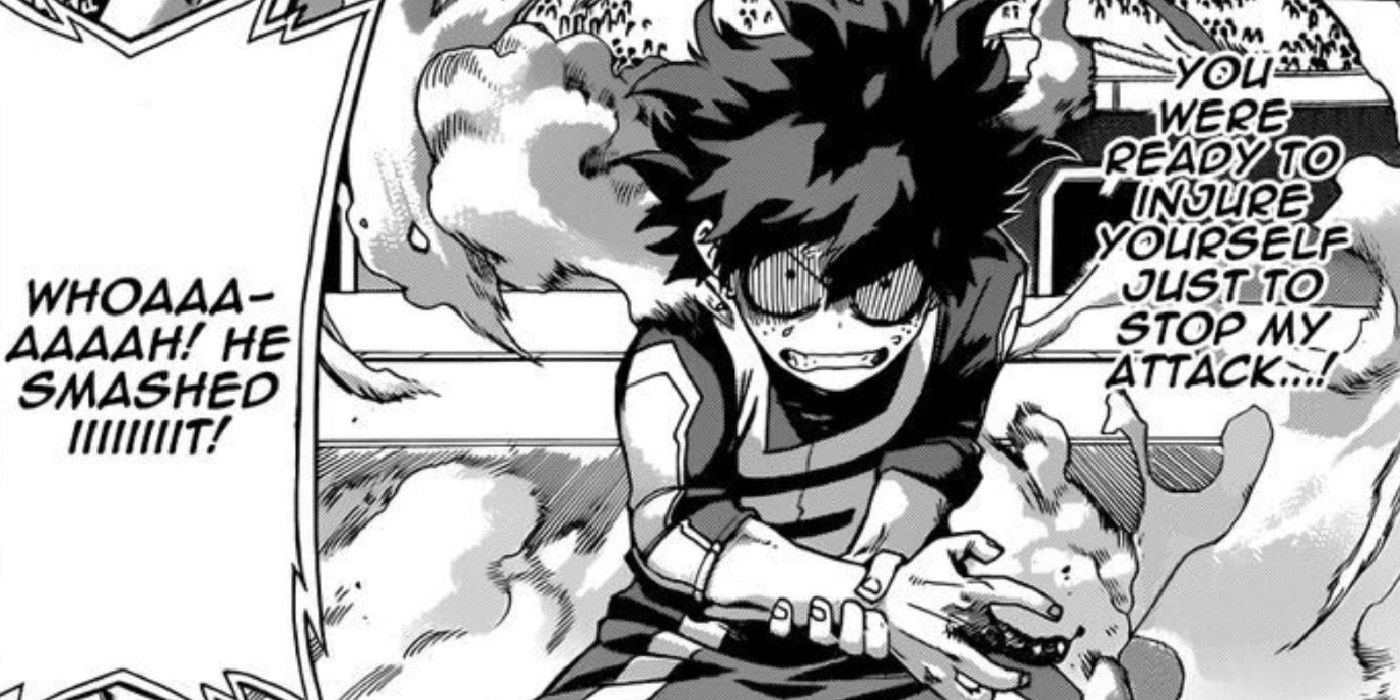While My Hero Academia showed immense creativity in the consequences of Deku's struggle to properly harness the One For All quirk, anime Darker than Black and its manga adaptation ask what would happen if he'd never learned to do so, and had to keep paying a physical price for his power. The earlier segments of the manga where Deku breaks or severely damages the parts of his body that unleash the powerful quirk echo Darker than Black, which invests more heavily in this idea of power through sacrifice.
When Deku first receives the coveted quirk from his hero and previous One For All user All Might, his body just cannot handle the blowblack that comes as a result of harnessing its immense power. This forces him to strategically choose where on his body he manifests All Might's power during combat, since this area will almost certainly be too damaged to use again in the same way.
For example, one of Deku's earliest tactics involves limiting one attack per finger, each of which wields One For All separately. He releases its power by first pressing the designated finger on his thumb and then using that pressure for a flick infused with One For All energy, the momentum of which sends a concentrated blast toward his opponent. The pressure is so great, however, that the finger he uses to flick instantly breaks. Luckily, All Might later teaches Deku how to control his power by limiting how much energy he uses when summoning and releasing One For All.
In Darker than Black, a supernatural phenomenon in Japan causes certain individuals known as Contractors to gain incredible powers. While many view these newfound abilities as a gift, wielding them comes at a price, known as Obeisance or Contract Payment. The precise nature of payment is unique to each Contractor, and the severity varies. For example, many Contractors are forced to involuntarily eat or drink certain substances or engage in menial and oftentimes arduous tasks such as having to meticulously arrange pebbles in straight lines. But the Obeisance that best matches Deku's original predicament is that of Louis, who has to dislocate his fingers so he can control gravity.
Unlike My Hero Academia, the entirety of the manga Darker than Black is essentially a parable about the cost of power, illustrated through each individual Contractor's journey and struggle with their Obeisance. While this relationship is usually conveyed in other media as powerful people disconnecting themselves from friends and family or as a means to relate the message that "money can't buy happiness," Darker than Black chooses to explore this phenomenon in a new and profound way.
In contrast, Deku's predicament is only meant to serve as a means to exemplify his determination, proving that Deku is willing to do everything and anything to become a hero; even hurt himself. Allowing this to become just a temporary setback transforms the painful cost into just a way of illustrating how much he has overcome to become the new number-one hero. But what My Hero Academia uses as a fun obstacle, Darker than Black takes as its central thesis, weaving a fascinating story from this core idea of wielding incredible power, and paying the price.


